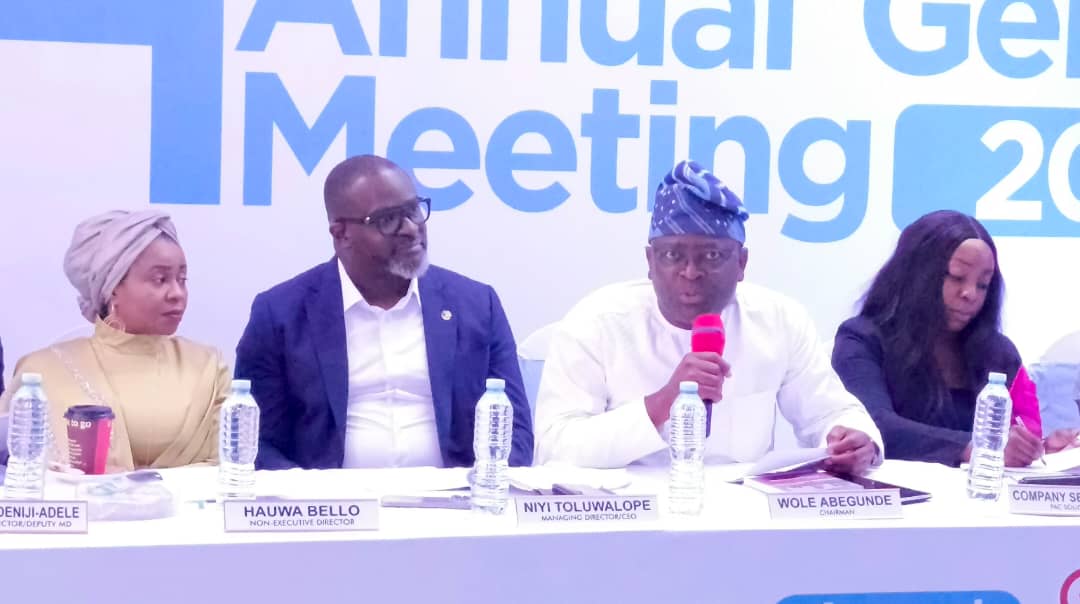The realities of our time are dreadful. From the starvation bedevilling northern Nigeria to the terrorism of herdsmen killing and maiming their unfortunate victims across the country, uncertainty and fear fill the air. Our honestly earned income can no longer feed our families not to talk of providing suitable clothing and shelter. The roads are no longer safe not only because they have been unmotorable; however, they have become an open marketplace for kidnapping and murder. The torrential streams of the blood of ordinary Nigerians are mutating into a river. Other nations of the world dread us and profile every citizen of our country as a possible terrorist. More businesses crash out with thousands of hitherto employed people rudely flushed into the job market. Truthfully, the times are dire and desperate for attention. Although it may be possible that our politicians and people in power may not feel the full effects of these situations, it is only blind and deaf people that would not know. However, many of those in political authority behave as if the gods have struck them blindness and deafness leaving them only with the tongues to testify to half-truths and insults. These manifest in about four different ways in which those in power in Nigeria engage with the rest of us regarding the circumstances of our times. Their first approach is usually the denial of the existence of such challenges requiring dire attention. This approach is not divorced from their apparent unwillingness to act in ways and manners suggestive of readiness to resolve the problems. The second approach is to pass the blame to another group of people or the opposition political party as if the latter is accountable to the people in the present. The third approach is to use the media to obfuscate the public in a way that signals that they are resolving the problem when, in actuality, they have not lifted any finger. There are several willing elements in the media to help them to promote deceitful propaganda about non-existent efforts channelled to severe issues of national concern. The fourth approach is to shoddily engage with the challenge to send a deceptive signal of dealing with the problem.
The denial of the existence of barefaced problems confronting Nigerians by the political authorities can only be a function of many factors. The first is the demonstrated pervasive deficiency in understanding the true nature and complexity of the problems bedevilling Nigerians. A well-known defeatist strategy is to deny the existence of a challenging situation even when such is evident to most people. That approach is short of accepting that the challenge at hand has truly overwhelmed their capacity to resolve most of them. The natural response of someone with the magic to fix a problem is to quickly accept its existence and then proceed to deploy the set of solutions that puts the problem entirely away. Issues do not stand in the way of those who know how to deal with them. The continuous existence of the numerous challenges bashing our country is because those who are in the reins of power do not have the solutions for them. And rather than accept that they cannot deal with them, they resort to puerile-type denial. It is extremely embarrassing when we see our political office holders denying the existence of challenges or problems that are known to every person. For instance, on several occasions, the spokesman of the government insisted that the government has substantially degraded the capacity of Boko Haram and is mostly defeated. But every single Nigerian knows that this is the height of lies.
Similarly, the passing of blame to evade the flimsiest of easily resolvable problems also emphasises the lack of capacity or willingness to solve problems on the part of those in positions of authority. One deceptive rhetoric rhyming from the mouths of Nigerian politicians is the “continuity” of government. While that should be the standard for all aspiring officeholders, it is considered a theoretical normative that has no place in Nigeria’s governance reality. Consequently, virtually all of them fail the test of continuing with and completing many of the programs and projects instituted by either the government or that of a different political party. Hundreds of abandoned projects in the country today are sad testimonies of the unwillingness of either successors or governments led by a competing political authority to continue the plan. Although, sometimes it could be because of any of these two possible reasons. The first is that the predecessor might have collected the typical rent which most politicians build into the budgets for such projects. The second possible reason is that it may be challenging to distinguish unequivocally, the official to attribute the project. The question would be whether the originator of the project or the one who completed the project should own its success story upon completion. Some also blame their predecessors for either initiating what they would consider an unneeded project or for not completing it before the expiration of their tenor. In spite of all the funds in the position, most of these persons in authority do not want to take responsibility and be accountable to the people for the completion of such project or accept the blame for the losses which may arise for not completing it. For instance, this current administration blamed every single challenge confronting us today on the previous administration. Governments and people are voted into power to resolve the difficulties that they meet on the ground rather than pointing fingers and transferring blames like a spoilt child.
The most common and equally most shameful approach in use by the managers of our statecraft is the conduct of large-scale media confusion and distraction. In the former, willing members of the media are used to generate propaganda that makes the public believe that the issue at hand is being dealt with by the government. For example, quite often we read newspaper headlines like: “government forces have now reclaimed many local communities previously under the control of insurgents”. Regardless of the apparent falsehood, it receives some acceptance because of the hidden trust on the media. It also sends a false message of relief to those who are not from those local government areas. Such false propaganda is quickly picked up by other media organisations and amplified. Being a sponsored propaganda makes its speed of dissemination so meteoric that counter truth counter will rarely be able to diffuse and correct it. We have many such instances across the country. The stock in trade of our political class is the generation and amplification of fake news that only serves their selfish interest in looking good in the eyes of the public when the opposite is indeed the truth. That is why some governors will spend three times the amount of money used in putting together a project on media show-off of the same project. The idea is to distract attention from asking questions about their performance. Tactical distraction is a popular tool in the hands of political leaders. For instance, when people are clamouring for enhanced security, the government might initiate a controversial debate that diverts the attention of more people from the issues at hand.
The absence of clearly distinguishing ideologies of political parties in Nigeria means that members are not inspired to change the status quo. All the political parties in Nigeria are confusingly ideologically the same. Consequently, the electorates find it challenging to differentiate one from another. Political parties in Nigeria, therefore, are merely platforms for those aspiring to political offices. Any of such preferred platforms at any given point in time attract a vast horde of members and gale of defections. The interest of members is not tied to the parties non-existent ideological stance but rather on the opportunity to be a shark on the country’s resources. Long queues of such loyal party members consequently stretch beyond sight while their leading members, particularly those who have held and continue to keep top political offices act as political gods. As a result, they expect people who want to be like them to carry their bags over a protracted period. Carrying political bags also implies that one has to be unquestionably obedient and rarely question the opinion of the so-called leaders or political gods. As a result of that, it becomes difficult to have proper change agents within our political party system. Ironically many of these so-called political gods lack the ideas and initiatives to move Nigeria forward. Therefore, even when the political gods are lying, those who line-up behind and below are bound by the expectations of their bag carrying behaviour not to go contrary to those opinions. Testimonies of these abound in the many clashes between the so-called godfathers and political godsons and daughters. Therefore they can play with the lives of the majority of Nigerians without question.
Finally, perhaps, one other key reason why the realities of our country are unconscionably politicised is the painful fact that Nigeria is a transaction society. Practically anything can be bought and sold in the country. University degree paper has a market price. Likewise, people buy and sell jobs without any consideration of competencies. We see a daily transaction that goes on even on human beings from babies to kidnapped adults. If such things take place at a large-scale as we know it, every other stuff is tradeable as well. So, politicians therefore conveniently trade in our lives. They share out portions of programs, policies and projects to one another depending on what is to be personally gained. Like a gang of conscienceless cultists, they all keep mute even when they see that the economy is bleeding to death. And using the media, they confuse the gullible population of citizens and make them believe that something is going on whereas they have sold our collective wealth and resources and pocketed the monies realised from them. The pages of newspapers everyday blare on the horrendous rip-off of the country by individuals that are well known eventually go scot-free and unquestioned.










